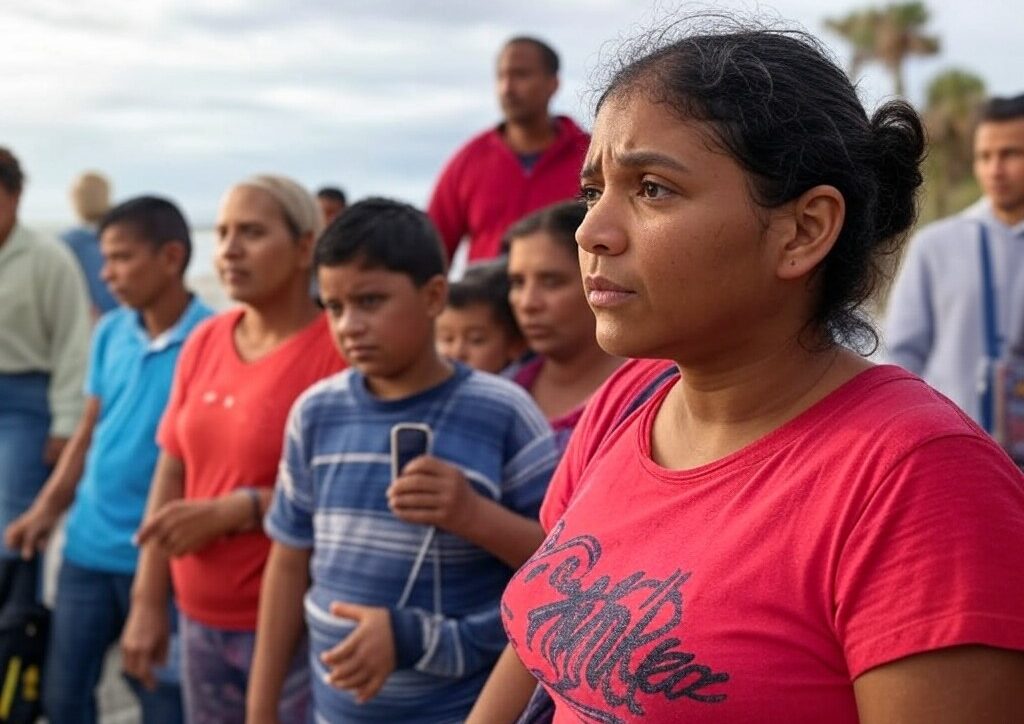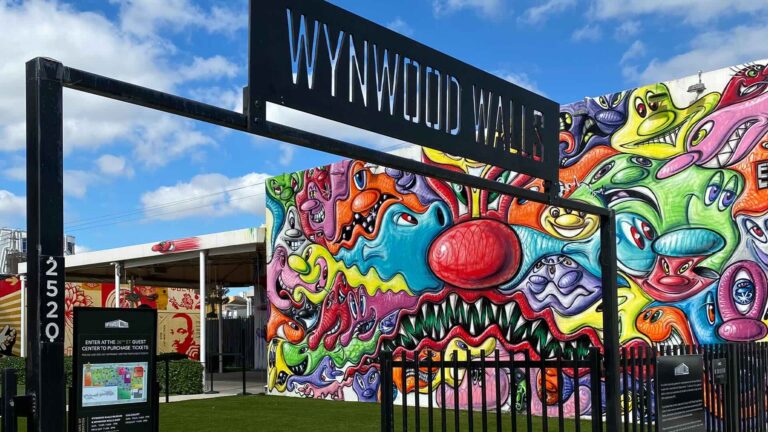Immigration has always been a defining issue in American politics, but nowhere is it more significant than in Florida, a state with a booming economy, a massive immigrant population, and a long history of migration from Latin America and the Caribbean. Florida is home to an estimated 900,000 undocumented immigrants, a number that has made it a central battleground in the national immigration debate.
With Donald Trump leading the charge on a hardline immigration platform for 2024, Florida finds itself at the intersection of economic necessity and political ideology. His proposals, ranging from mass deportations to ending birthright citizenship, could have far-reaching consequences for Florida’s workforce, economy, and social landscape.
But what would Trump’s immigration policies really mean for Florida? How do they compare to what’s already happening under Governor Ron DeSantis? And will Florida’s economy, heavily reliant on immigrant labor, survive the sweeping crackdowns that Trump is promising?
Florida’s Undocumented Population: The Facts Behind the Numbers
Florida has long been one of the top destinations for immigrants in the U.S. The state’s warm climate, vast job opportunities, and historical ties to Latin America and the Caribbean have made it a key landing spot for immigrants—both documented and undocumented.
According to estimates:
- 900,000 undocumented immigrants currently reside in Florida.
- Florida ranks third in the U.S. for the highest undocumented immigrant population, after Texas and California.
- The majority of Florida’s undocumented residents come from Mexico, Central America (Guatemala, Honduras, El Salvador), the Caribbean (Cuba, Haiti, the Dominican Republic), and South America (Venezuela, Colombia, Peru).
- Many arrived legally but overstayed their visas, while others crossed the southern border or arrived by sea.
These undocumented workers contribute billions to the state’s economy, yet they also face increasing legislative hostility.
The Economic Reality: Florida’s Dependence on Undocumented Labor
There’s a major disconnect between political rhetoric and economic necessity when it comes to immigration in Florida. While politicians push for stricter immigration policies, businesses—especially in agriculture, construction, and hospitality—are struggling with severe labor shortages.
Undocumented Workers Fuel Florida’s Economy
According to the Florida Policy Institute, nearly 400,000 undocumented immigrants work in Florida’s economy. These individuals earned over $12 billion in wages in 2019 alone.
Key industries dependent on undocumented labor include:
- Agriculture: Florida’s $162 billion agriculture industry—which produces oranges, tomatoes, sugar, and more—relies heavily on migrant labor. Without them, crops would rot in the fields.
- Construction: With Florida experiencing a housing boom, undocumented workers form a major part of the construction workforce.
- Hospitality & Tourism: Florida’s hospitality industry, which generates over $100 billion annually, is dependent on undocumented workers in hotels, restaurants, and resorts.
The Impact of Anti-Immigration Laws on Businesses
Governor Ron DeSantis signed Senate Bill 1718 in 2023, targeting undocumented workers. The bill included:
- Mandatory E-Verify for businesses with more than 25 employees.
- Criminal charges for transporting undocumented individuals into Florida.
- Invalidation of out-of-state driver’s licenses issued to undocumented immigrants.
The immediate fallout was disastrous:
- Farmers reported crops left unharvested as workers fled the state.
- Construction sites slowed down due to a lack of labor.
- Restaurants and hotels faced unexpected staffing shortages.
Despite these economic concerns, Trump is now doubling down on an even more extreme immigration crackdown—one that could make Florida’s situation far worse.
Trump’s 2024 Immigration Agenda: What’s in Store for Florida?
Donald Trump’s 2024 campaign is centered on the most aggressive immigration crackdown in U.S. history. He has promised mass deportations, border militarization, and policies that would radically reshape the country’s immigration system.
1. Mass Deportations on an Unprecedented Scale
Trump has pledged to deport millions of undocumented immigrants in what he calls the largest deportation operation in American history. His plan mirrors “Operation Wetback” (1954), which forcibly deported thousands of Mexican immigrants.
- For Florida: Businesses that depend on migrant labor would collapse overnight if large-scale deportations occurred.
- For communities: Mixed-status families (where some members are citizens and others are undocumented) would face mass separations and displacement.
2. Nationwide E-Verify and Workplace Raids
Trump has vowed to expand mandatory E-Verify nationwide, meaning all businesses must check a worker’s immigration status before hiring. Additionally, he wants workplace raids and harsh penalties for businesses that hire undocumented workers.
- For Florida: With E-Verify already hurting industries, a national crackdown would cause construction projects to stall, farm production to plummet, and businesses to shut down.
- For undocumented workers: Many would either flee the state or be pushed further into the shadows, increasing exploitation and dangerous working conditions.
3. Militarization of the Border & Expedited Deportations
Trump has stated he will send U.S. troops to the border and reinstate the “Remain in Mexico” policy, forcing asylum seekers to wait in Mexico while their claims are processed.
- For Florida: While not a border state, Florida receives thousands of asylum seekers from Cuba, Haiti, and Venezuela.
- If asylum policies tighten, Florida could see a rise in detentions and deportations, particularly for those arriving by boat.
4. Ending Birthright Citizenship
Trump has also proposed ending birthright citizenship for children born to undocumented immigrants, a direct challenge to the 14th Amendment.
- For Florida: Florida has a large mixed-status family population. If Trump successfully ends birthright citizenship, thousands of U.S.-born children could be left stateless, facing deportation with their families.


The Political Landscape: How Florida Will Decide
Florida’s political scene is shifting. The state has historically leaned conservative, but its immigrant population—especially Latinos, Venezuelans, Haitians, and Cubans—is becoming a key voter bloc.
Florida’s Latino Vote: A Wild Card
Latinos in Florida have a complex political identity. While many Cuban-Americans lean Republican, younger Latinos and immigrants from Venezuela, Puerto Rico, and the Dominican Republic tend to oppose Trump’s extreme immigration policies.
- In 2020, Trump made gains with Latino voters, winning 46% of the Latino vote in Florida.
- If he pushes extreme deportation policies, he could lose support from Latino business owners, farmworkers, and mixed-status families.
The 2024 election could come down to Florida, and immigration will be a major deciding factor.
Final Thoughts: What’s at Stake for Florida?
Florida’s economy, culture, and identity are deeply tied to immigration. While politicians like Trump push for mass deportations and harsh crackdowns, the reality is that Florida cannot function without immigrant labor.
If Trump’s extreme immigration agenda becomes reality:
- Businesses will suffer from labor shortages.
- Families will be torn apart by deportations.
- Florida’s economy will take a major hit.
The question remains: Will Florida voters prioritize economic survival over political rhetoric, or will they rally behind Trump’s immigration crackdown? The answer will shape the future of the Sunshine State for generations.




